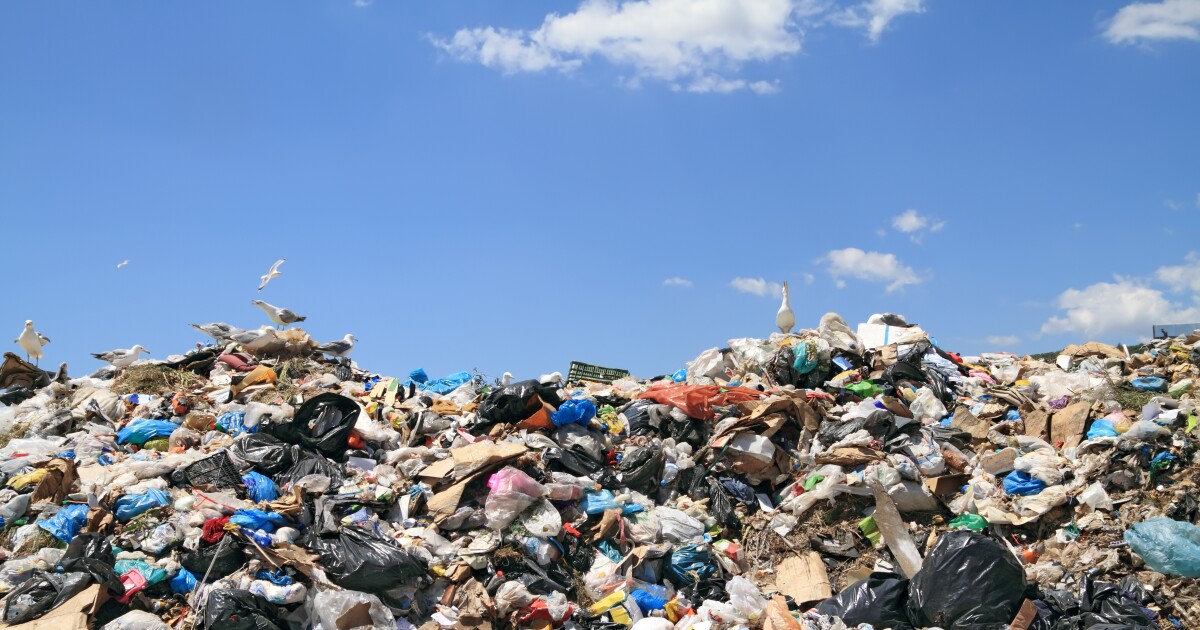Michigan Proposes Increase in Landfill Fees to Address Influx of Out-of-State Trash
Michigan has found itself as a dumping ground for trash from various U.S. states and even Canada due to its lower landfill dumping fees compared to neighboring regions. Governor Gretchen Whitmer recently recommended a significant increase in these fees as part of her fiscal year 2026 budget proposal.
In her proposal, Whitmer suggests raising the current landfill dumping fee of 36 cents per ton of waste to $5 per ton. This move aims to not only align Michigan’s fees more closely with the Midwest average but also generate approximately $80 million in ongoing revenue that would benefit local communities.
Last year’s failed attempt and the ongoing issue of landfill capacity nearing its limits in places like Lansing and Detroit have spurred this renewed effort to tackle the state’s waste management challenges. Currently, Michigan receives around 12 million cubic yards of out-of-state waste annually, contributing significantly to greenhouse gas emissions and posing environmental concerns.
Impact of the Proposed Fee Increase
If implemented, the fee increase would serve as a financial incentive to reduce imported waste, mitigate greenhouse gas emissions, and extend the lifespan of existing landfills. While some critics have raised concerns about the potential impact on residents and businesses, proponents argue that the proposed increase is a necessary step towards addressing environmental issues and bolstering local waste management efforts.
Notably, Michigan’s solid waste system is undergoing reforms following bipartisan legislation passed in 2022, emphasizing the need to enhance recycling rates and reduce organic waste. With a goal of achieving a 30% recycling rate by 2029, the state aims to streamline its waste management practices and promote sustainability.
Past Attempts and Industry Response
Previous efforts to raise tipping fees in Michigan have faced challenges, with concerns about cost implications for schools and resistance to fee hikes. The Michigan Waste & Recycling Association has voiced opposition to Whitmer’s proposed increase, citing potential affordability issues for residents, businesses, and essential service providers.
Despite the pushback, supporters of the fee hike argue that the proposed increase is a modest step that would not significantly burden households or large businesses. The ongoing debate underscores the complex nature of waste management policies and the need for a balanced approach to address environmental concerns while considering economic factors.
In Michigan, recycling rates have been a point of concern, with the state falling behind national averages. Kerrin O’Brien, the executive director of the Michigan Recycling Coalition, highlighted this issue, emphasizing the need for increased funding and attention towards recycling and composting programs. O’Brien pointed out that Michigan’s landfill costs are relatively low, making it challenging for recycling and composting initiatives to compete effectively.
To address environmental concerns and contaminated sites, the Michigan Department of Environment, Great Lakes, and Energy (EGLE) has set goals for overseeing and conducting site cleanups. Governor Whitmer’s proposal to increase tipping fees aims to generate revenue dedicated to environmental remediation efforts, particularly focusing on the cleanup of over 24,000 contaminated sites across the state.
O’Brien supported the idea of using the fee increase to fund contaminated site cleanup, acknowledging the importance of addressing these environmental hazards. However, she also stressed the need for additional policies that hold waste-producing organizations accountable for their environmental impact. O’Brien highlighted the potential long-term consequences of neglecting waste management, warning that current waste issues could escalate into future contamination problems if not properly managed.
While the proposal shows a commitment to remediation efforts, O’Brien suggested that more investments are necessary to help communities manage waste effectively and prevent future environmental challenges. By supporting recycling and composting programs through increased tipping fees, Michigan aims to create a more sustainable waste management system that prioritizes environmental protection and public health.






